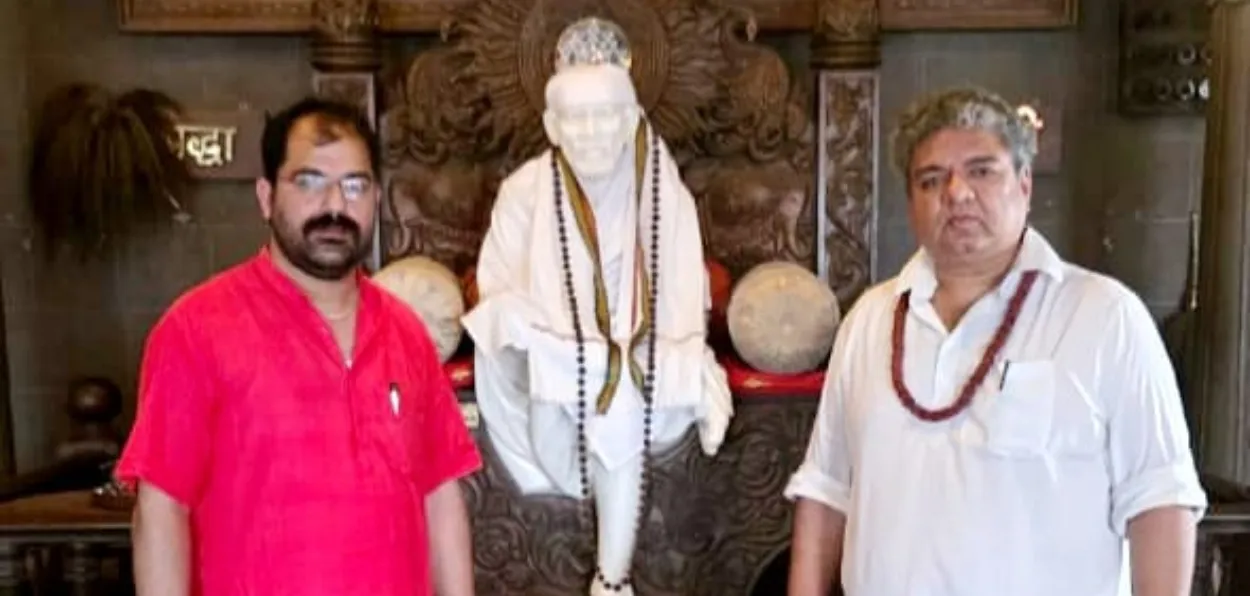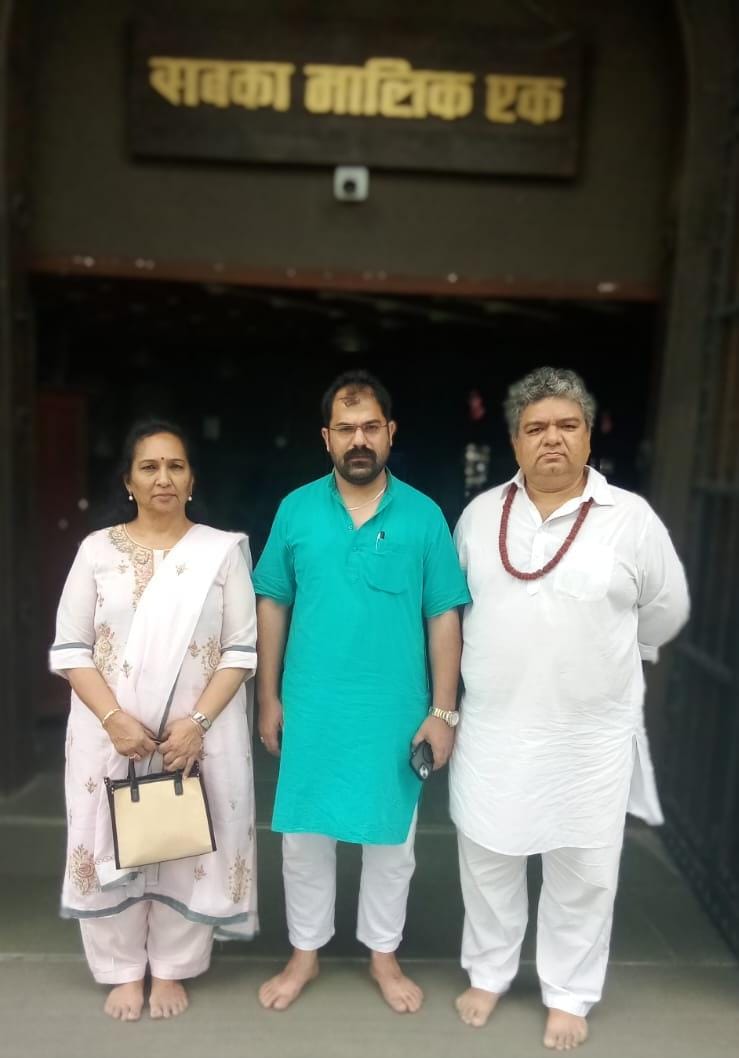
Srinagar
At a time when a section of Muslims is objecting to the inclusion of non-Muslims in the Waqf Boards under the provisions of the recently amended law, a moving story of religious unity and trust is unfolding quietly in Kashmir.
Sai Mandir Sansthan, a religious and social trust based in Surat, Gujarat, has appointed Firdous Baba, a Kashmiri Muslim and a known social worker, as a trustee of its upcoming Sai temple project in Anantnag, South Kashmir. In a country often fragmented by identity politics, this single appointment makes a profound point -- the essence of India lies not in division, but in shared service and mutual respect.
Geeta Shroff, a Gujarat-based women’s rights activist and a member of the Uniform Civil Code Drafting Committee, is also a trustee of the project and will be leading the women-centric initiatives. She believes this center will redefine how the world sees Kashmiri women—not as victims, but as change-makers.
“Women in Kashmir will no longer be seen only as victims, but as architects of a new tomorrow. Every stitch they sew here will carry a thread of hope — for themselves, for their children, and for Bharat,” she says. Her presence also reaffirms that this project has a clear national character, combining local empathy with national policy sensibility.
Acharya Shyam Suresh, President of Sai Mandir Sansthan, Surat, says, “When a Hindu temple opens its arms to include a Muslim trustee not for appearance, but for action—it reflects the deepest values of our civilization. The ‘Temple of Humanity’ is a tribute to India’s civilizational confidence. It proves that we are not afraid of diversity; we welcome it. In an age where loud voices divide us, this silent act unites us.”

Firdous Baba with Geeta Shroff and Acharya Shyam Suresh
Firdous Baba is no stranger to the people of Kashmir. As the founder of Kashmir Sewa Sangh, he has spent years working in the fields of education, healthcare, rehabilitation, and skill-building—particularly in conflict-hit and underserved areas of the Valley. His inclusion in the temple trust is not a token gesture, but a genuine acknowledgment of his service, integrity, and vision.
It sends out a strong, reassuring message to India and the world: here, faith is personal, but service is universal. That a Muslim man is now among the key trustees of a Hindu temple dedicated to Sai Baba—a saint revered across communities— underlines the idea that spirituality and service can transcend all boundaries.
The “Temple of Humanity” project in Anantnag is envisioned not just as a religious space, but as a living ecosystem for uplifting humans, and it features facilities that aim to empower women, educate children, and provide essential healthcare services to all.
The trust plans to establish multiple social facilities alongside the temple campus, turning it into a full-fledged community welfare center. These include vocational training centers for women—offering sewing, embroidery, and digital literacy courses—as well as youth development programs designed to build job skills and entrepreneurship.
A school unit will distribute free educational materials, organize tutoring, and promote inclusive education, while health camps will offer weekly medical check-ups, medicines, and counseling to the public at large. This is not merely charity; it is structured empowerment — a model for self-reliant, inclusive development rooted in Indian values.
Firdous Baba says, “I am a Muslim, and yet I’ve been entrusted with the responsibility of serving in a Sai Baba temple. This is the true spirit of India—a land where your work matters more than your name, your compassion more than your identity. Our answer to the pain of Pahalgam is not hate, but harmony. Through Kashmir Sewa Sangh, we always believed that what the Valley needs is not weapons, but skills. Today, that dream is taking shape in the form of the ‘Temple of Humanity’. This is not just a temple—it is a social revolution under construction.”
ALSO READ: Civil servant couple Anjum Ara, Yunus Khan show the way to honour fallen soldiers
As the first bricks of the Temple of Humanity are laid in Anantnag, they do not just form a building — they form a message. A message that India’s greatness is not in any single faith, but in its ability to embrace all faiths through action. This is not merely a regional story — it is the story of Bharat’s true strength: unity without uniformity and progress without prejudice.
